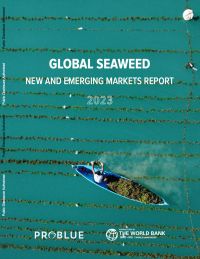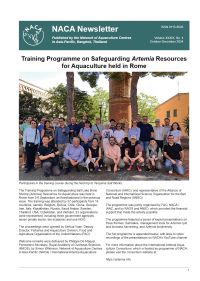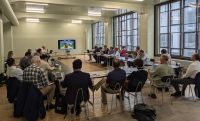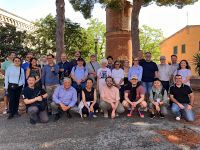With its ability to sink carbon, sustain marine biodiversity, employ women, and unlock value chains, seaweed farming demonstrates how development, climate, and nature work together to generate value and uplift communities. Seaweed farming can help build a world free of poverty on a livable planet and has enormous growth potential. This report has identified ten global seaweed markets with the potential to grow by an additional USD 11.8 billion by 2030. Yet, much of the seaweed sector’s value remains untapped - it has clear growth potential beyond its current markets. Today, most farmed seaweed is used for direct human consumption, as fresh feed in aquaculture, or as hydrocolloids. However, seaweed-farmed products may be able to displace fossil fuels in sectors such as fabrics and plastics; can provide ecosystem services, such as carbon sequestration and nitrogen cycling; and can generate socioeconomic benefits in fragile coastal communities.
In this issue:
- Training Programme on Safeguarding Artemia Resources for Aquaculture held in Rome.
- First International Artemia Aquaculture Consortium Conference and Members' Meeting, Ostend, Belgium.
- Inception workshop: Knowledge brokering for nature-based solutions in aquaculture transformation.
- Reported Aquatic Animal Diseases in the Asia-Pacific Region during the First Quarter of 2024.
- 14th Asian fisheries and Aquaculture Forum, India.
- PhD scholarships: Shanghai Ocean University PhD Programme 2025.
Videos available: First International Artemia Aquaculture Consortium Conference and Members' Meeting
The first ever IAAC conference was a free half day event held in Ostend, Belgium on 9 September, as a prelude to Larvi 2024, which ran from 9-12 September. The conference featured twelve presentations introducing the IAAC and providing an overview of many of the issues surrounding Artemia, including management of salt lakes habitats that still provide the bulk of global Artemia supplies, Artemia biodiversity, hatching optimisation, and aquaculture of Artemia biomass in tanks and ponds. Video recordings of most will be posted shortly (the programme below will be updated with links). Video recordings of the presentations are now available on the NACA YouTube channel.
The first IAAC Members’ Meeting was held in the afternoon following the IAAC Conference. The proceedings involved two panel discussions, by the Academic Sector and Private Sector respectively. The panels included remote members participating via Zoom.
The Training Programme on Safeguarding Salt Lake Brine Shrimp (Artemia) Resources for Aquaculture was held in Rome from 2-6 September. The course was attended by 37 participants from 15 countries. The programme was jointly organised by FAO, NACA / IAAC, and by RAOS and ANSO, which provided the financial support that made the activity possible. The programme featured a series of expert presentations on three themes: Salt lakes, management tools for Artemia cyst and biomass harvesting, and Artemia biodiversity. The full programme is appended below, along with links to the video recordings of the presentations on NACA’s YouTube channel.
With the implementation of the new aquatic animal disease reporting in the Asia Pacific region from January 2021 NACA is publishing reported aquatic animal diseases submitted by countries in the Asia-Pacific region. This report covers the second quarter of 2024 and the original and updated reports can be accessed from the QAAD page.



